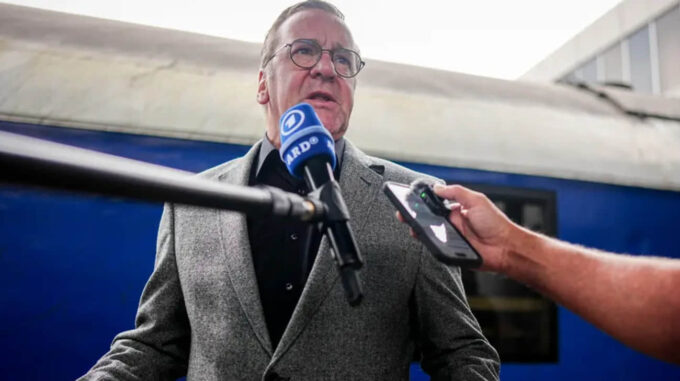German Defense Minister Boris Pistorius in Kyiv: Key Goals and Sharp Statements Amid Diplomatic Challenges

June 12 – Kyiv hosted a high-level guest – the Federal Republic of Germany's Defense Minister Boris Pistorius, who arrived on an important mission to discuss further steps in supporting Ukraine in its confrontation with Russian aggression. This is an extremely significant diplomatic visit against the backdrop of escalating frontline tensions and internal debates within Germany regarding policies toward Ukraine and Russia. Rising Military Assistance and Pursuit of Diplomatic Dialogue According to "European Pravda," citing the German TV channel Tagesschau, during the initial hours of his stay in the Ukrainian capital, the minister announced that Berlin is doing everything possible to support Ukrainian society and armed forces in their confrontation with Russian aggression. It appears that the main goal of the visit is not only to discuss the already provided military aid but also to find ways to further increase and improve it. "We aim to help Ukraine defend itself and reach a position where Russia may be ready for serious negotiations," Pistorius stated during a meeting with journalists at Kyiv’s train station, emphasizing support policies and diplomatic efforts. Call for Peace Negotiations and Condemnation of Russian Attacks Soon after arriving in Kyiv, the German Defense Minister expressed sharp criticism of the escalation of military actions by Russia. Specifically, he condemned the massive airstrikes carried out by Russia, describing them as "extremely brutal and threatening." According to Pistorius, Moscow is using many cruise missiles and drones to attack Ukrainian cities, which is a clear signal that, for Russia, halting hostilities is not yet an option. On the contrary, strikes continue with increasing brutality and, alarmingly, civilian targets and residential areas of Ukrainian cities are increasingly being hit. The defense chief called on the global community to pay attention to this danger and underscored that Ukrainians are fighting not only for their territory but also for their lives and future. It is important to note that this visit took place amidst not only military developments but also numerous political debates within Germany. Political Challenges in Germany: Reactions to the "Manifesto" and Internal Contradictions A few days before arriving in Kyiv, a significant publication stirred public opinion in Germany. The "Manifesto," signed by over a hundred figures affiliated with the Social Democratic Party, called for changes in the country’s security and defense policies, including negotiations with Russia to achieve peace. Notably, the manifesto also proposed halting the deployment of new American medium-range missiles in Germany, which sparked mixed reactions among politicians and the public. Commenting on the document, Pistorius said that "the authors of the ‘Manifesto,’ in their passionate desire for peace, deny the reality of the situation and try to ignore Russia’s aggressiveness." Accordingly, the minister’s statements openly diverge from the position of politicians and public figures who wish to strengthen military aid and continue defense initiatives. Overall, Boris Pistorius’s visit to Kyiv reinforces an important diplomatic and military line of support for Ukraine. While internal debates persist within Germany regarding future policies amid the Russia-Ukraine war, the German official calls for unity and support for the Ukrainian people and military. This visit is yet another testament to the close cooperation between the countries in fighting aggression and striving for a stable and secure future for Ukraine.

